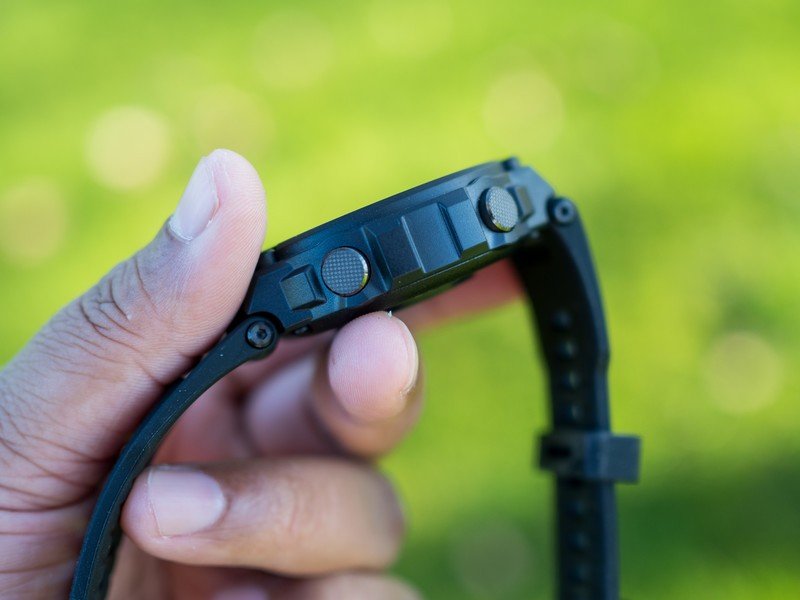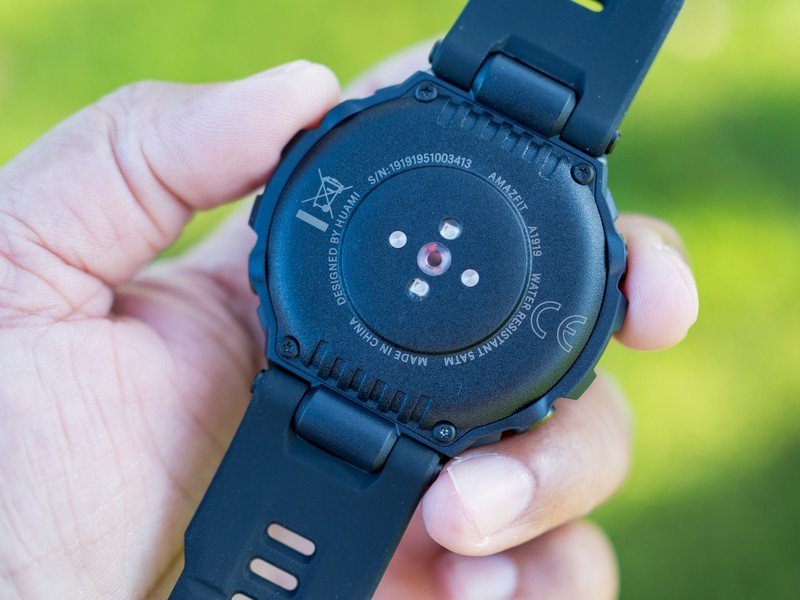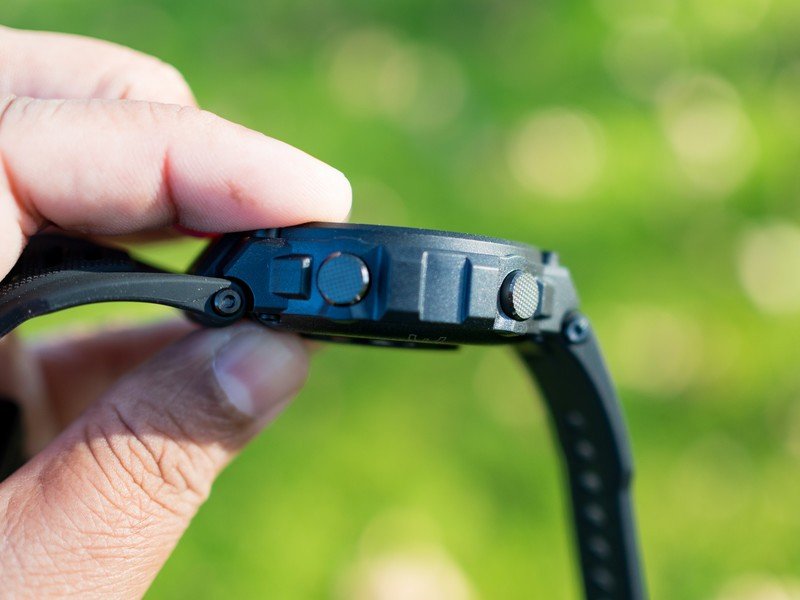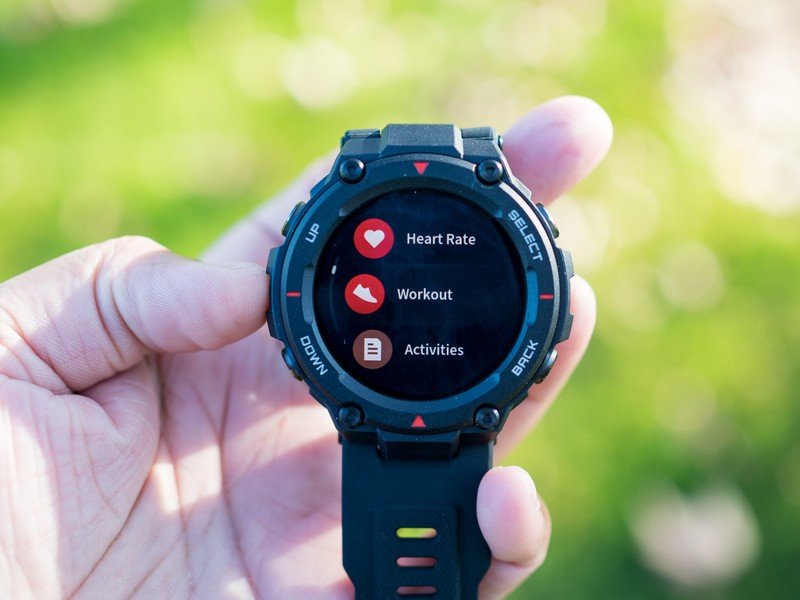Huami has been making fitness bands for Xiaomi all the way from the 2014 Mi Band, and in recent years the brand decided to launch its own range of wearables under the Amazfit label. Like Xiaomi, Amazfit's core tenet is delivering great value for money, with smartwatches like the Verge offering an exciting set of features for less than rival brands.
At CES 2020, Amazfit is making its foray into a new wearable category: rugged smartwatches. This particular segment has been dominated by brands like Garmin, Casio, and Suunto, and Amazfit believes that its value-focused strategy will allow it to gain momentum. Its first product in this category is the T-Rex, so let's take a look at what the smartwatch is all about.
The T-Rex looks big, but it isn't bulky at all. Coming in at just 56g, you'll barely feel it on your wrist. For context, my regular Promaster Skyhawk weighs a hefty 408gm. The chassis itself is made out of plastic, and the smartwatch conforms to the MIL-STD810G rating, making it resistant to the elements.



There are two buttons on either side of the smartwatch, giving you the ability to navigate the interface even when you're wearing gloves. You'll find the Select and Back buttons on the right, and Up/Down buttons on the left side. The silicone band feels great and is comfortable for all-day use, but the fact that it isn't interchangeable is a miss.
The rugged design paired with 20-day battery life puts the T-Rex in a league of its own.
The front is dominated by a 1.3-inch AMOLED panel that has vibrant colors. The T-Rex is water resistant up to 5ATM, and comes in built-in GPS, GLONASS and BeiDou navigation. There's also Bluetooth 5.0, a heart rate sensor, and battery life that's touted to last up to 20 days. I've been using the T-Rex for just under a week, and the fact that I didn't have to charge the battery yet suggests Amazfit's claims in this area will hold up to real-world usage.
You also get activity tracking for the likes of skiing, hiking, climbing, and running. On-device GPS is a big plus as it lets you track hiking routes or chart your runs even when you don't bring your phone along. Like the rest of Amazfit's wearable offerings, you'll have to pair the smartwatch with the Amazfit app. I tried out the beta version of the app with the T-Rex, and ran into my share of issues trying to get notifications to sync on the smartwatch.

The UI isn't the most polished around, but it has the features that you're looking for in a smartwatch. There's notification mirroring, activity alerts, ability to customize watch faces, and so much more. Overall, the T-Rex has a lot to offer if you're in the market for a rugged wearable, but there are a few unknowns. For one thing, there's no information on how much the smartwatch will retail for, and when it will hit store shelves.
It is possible we're looking at a sub-$200 price tag here, which should make the T-Rex an enticing option in this particular segment. I'll have much more to share about the smartwatch — including all the software features — in a full review, so stay tuned. In the meantime, share your thoughts on Amazfit's latest smartwatch in the comments below.

Harish Jonnalagadda is Android Central's Senior Editor overseeing mobile coverage. In his current role, he leads the site's coverage of Chinese phone brands, networking products, and AV gear. He has been testing phones for over a decade, and has extensive experience in mobile hardware and the global semiconductor industry. Contact him on Twitter at @chunkynerd.

